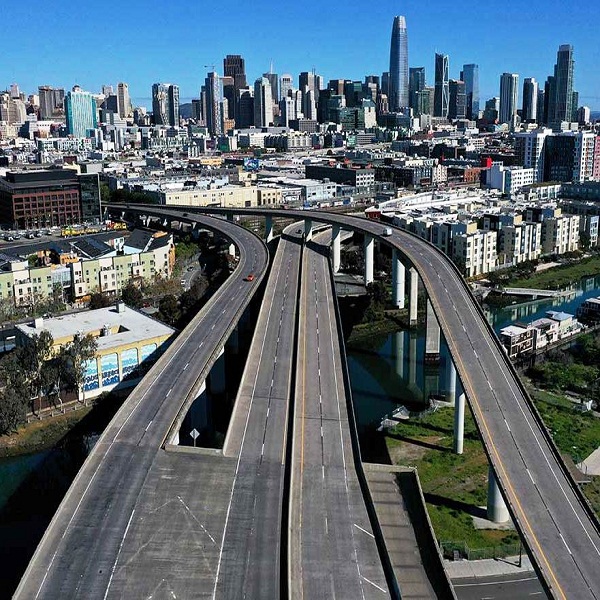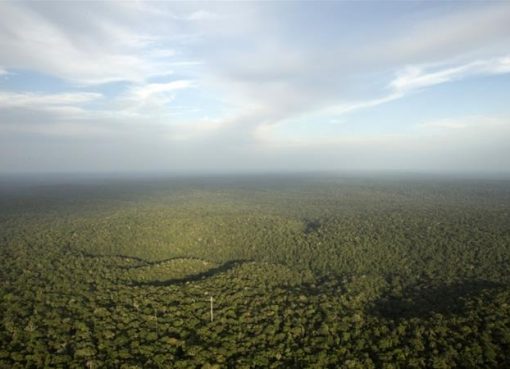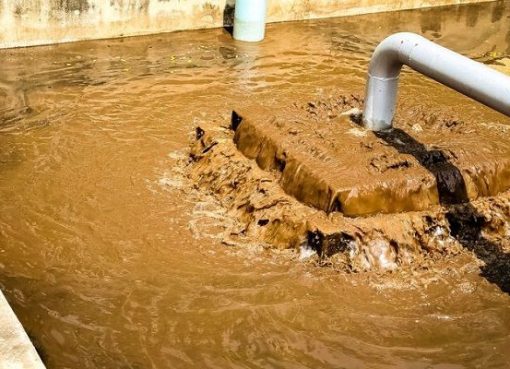Climate Change Vs. Coronavirus.
Whether their state is opening up or locking down again, Americans are generally staying home more during the COVID-19 pandemic. One result has been a significant reduction in greenhouse gas emissions, which could be as much as 7 percent lower in 2020 than they were in 2019. What remains to be seen is if we’ll be able to keep emissions at this level once the pandemic is over and people return to a more regular lifestyle.
In addition to the fact many Americans are telecommuting instead of driving to an office, more people are ordering groceries from home. Online grocery sales in the U.S. went up from $4 billion in March to a record-setting $7.2 billion in June.
Because we tend to assume the lazy option is the less eco-friendly option, you might think people ordering groceries online is worse for the environment. But research has shown that having vehicles delivery orders to multiple households, which is how Amazon Fresh and other vendors operate, is significantly better for the environment than having many people in cars going to the store individually. Not only do these service vehicles delivery to several homes on one round trip, they also follow the fastest route to each home, which makes the whole system pretty efficient and can reduce the carbon emissions associated with grocery shopping by 25 to 75 percent.
(Bad news if you use services like Instacart, which has one driver collect groceries for one person at a time: Because they’re not delivering multiple orders during one trip, they don’t really benefit the environment.)
Jesse Keenan, an associate professor of architecture and a social scientist at Tulane University who has studied sustainability extensively, tells Spectrum that getting groceries delivered is also not more eco-friendly if you’re getting groceries delivered but driving to do other errands in the same day. In that case, you’re just having someone do one of your multiple errands.
As for telecommuting, it’s not necessarily the case that everyone will be going back to work in an office once the pandemic abates. Now that some people have gotten used to working from home and have proven to their employers that they can be just as productive there as they were in the office, many companies may choose to continue having employees work remotely part or all of the time once the pandemic ends.
That would be good news for the environment and for corporate bottomlines.
Mikhail Chester, an associate professor of civil, environmental and sustainable engineering at Arizona State University, tells Spectrum that he can imagine some businesses seeing employees continuing to work remotely as a great way to save money.
“Right now, there are companies out there that were renting office space—they had a lease, and the lease expired and all of their employees have been working from home—and they probably made the decision that they’re getting the job done as effectively with a remote workforce and leasing a physical space is not really that necessary,” Chester says.
He adds that work and shopping are just two of many activities that people might continue to do virtually even when they don’t have to. Chester noted that pre-pandemic he used to fly a lot to attend conferences and meet with research partners but has now switched to doing these things virtually, which might be something that outlasts the pandemic.
Keenan says that the effect of more people working from home instead of traveling to an office or another brick-and-mortar business might depend on the city they live in, as many people use public transportation to get to work in some cities, which is better than driving to work.
“The problem is that service-based employment that is able to work from home is disproportionately in cities where many people take mass transit,” Keenan says. “But, small reductions—even in cities—could add up to reduce emissions on the margins. I think less business travel is more likely to have an aggregate impact. With Zoom, there could be fewer conferences and business travel—hence reducing air miles that are carbon-intensive.”
Michael Mann, a professor of atmospheric science at Penn State University and a leading expert on climate change, tells Spectrum that he expects that after the pandemic ends, there will be some long-term changes in how people approach work and other activities. But he doesn’t think these long-term changes are going to be nearly enough to beat climate change.
“In the end, personal lifestyle changes won’t yield substantial carbon reductions. Even with the massive reduction in travel and reduced economic activity due to the COVID-19 pandemic, we’ll only see at most about 5 percent reduction in carbon emissions [this] year,” Mann says. “We will need to reduce carbon emissions at least that much (more like 7%), year-after-year for the next decade and beyond if we’re too stay within our ‘carbon budget’ for avoiding dangerous >1.5°C planetary warming.”
People living more sustainably is important, and we should encourage it in any way possible, but if we’re going to beat climate change, Mann says we need major changes to how society operates. He says we need to “decarbonize” all forms of transportation and generally transition away from fossil fuel use across the board.
The fact we’ve seen such a significant reduction in carbon emissions this year is one good thing that’s come out of this terrible pandemic we’re facing, and overall, this reduction will likely be sustained as long as the pandemic remains a major issue. Perhaps that will buy us some time to get our climate change plans together. However, as Mann says, if we’re going to really beat climate change, it’s going to take a lot more than people making changes in how they live their daily lives. It’s going to take major changes to the economy and how we power the things we use.
“The main lesson is that personal behavioral change alone won’t get us the reductions we need,” Mann says. “We need fundamental systemic change, and that means policy incentives. We won’t get that unless we vote in politicians who will work in our interest rather than the polluting interests.”
Source: Spectrum










